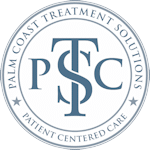Popular Post
Jump to Section
One of the most common symptoms of schizophrenia is paranoia, which affects the majority of people who suffer from it. Paranoia may come and go, or it may become a daily battle. It’s important to recognize that feeling anxious doesn’t mean you’re crazy. This is an understandable response to a fearful environment. Finding a good schizophrenia treatment program will help you learn how to deal with paranoia attacks and live a more peaceful life.
Schizophrenia is a frightening diagnosis, but with the right treatment, you can live a productive life. Palm Coast Treatment Solutions offers a schizophrenia treatment program to help manage your symptoms so that your daily life is less disrupted.
To learn more about how we treat schizophrenia at Palm Coast Treatment Solutions, call (386) 284-4151
What are Paranoia Attacks?
People suffering from schizophrenia are at risk of developing insanity. These also include periods when you feel you are in danger, even when this is not the case. During anxious episodes, you can:
- Consider that other people around you are trying to hurt you.
- Inquire about people’s motivations.
- Experience extreme sensations of fear or anxiety
- Because you don’t trust others, you must be more secretive.
- Develop a keen sensitivity to small things, no matter how trivial.
Signs of Paranoia
Paranoia episodes can be difficult to handle since your mind will not accept that your fears are unfounded. If your paranoid attacks are severe, you may need to be hospitalized.

Paranoia is a state of excessive or unreasonable suspicion that other people are plotting against you or trying to harm you. These can range from mild, fleeting worries to severe, delusional beliefs that significantly disrupt your life.
Here are Some Common Symptoms of Paranoia:
- Deep distrust and suspicion of others.
- Hypervigilance: People with paranoia are often on high alert and constantly scanning their environment for potential threats.
- Misinterpreting harmless actions: People with paranoia may misinterpret neutral or even friendly actions as hostile or threatening.
- Belief in conspiracies: People suffering from paranoia may believe that powerful forces are secretly working against them.
- Difficulty in relationships: Paranoia can make it difficult to trust and form close relationships.
- Social isolation: People with paranoia may avoid social activities and relationships because they fear other people are out to get them.
- Excessive defensiveness: People with paranoia can become immediately aggressive and defensive, even when not criticized.
It is important to note that everyone experiences anxious thoughts sometimes. However, if these thoughts are persistent and interfere with your daily life, it is important to seek professional help.
Paranoia Treatment and Professional help
Experiencing paranoia can be a difficult and isolating experience, but it’s important to know that effective treatments and professional support are available. Here’s an overview of what you can do:
Seeking Professional Help:
Mental health professional: Your first step should be to consult a mental health professional, such as a psychiatrist, psychologist, or licensed clinical social worker. They can assess your symptoms, diagnose any underlying conditions, and develop an individualized treatment plan.
Types of Therapy
Cognitive Behavioral Therapy (CBT): This is the most common and effective therapy for paranoia. It helps you identify and challenge negative thought patterns and develop coping mechanisms to manage stress and anxiety.
Family therapy: Family therapy may be effective if your paranoia is interfering with your relationships or is influenced by earlier family experiences.
Other forms of therapy: Depending on your needs, your therapist may recommend different approaches, such as psychodynamic therapy, mindfulness-based therapy, or group therapy.
Medicine: In some cases, medication may be recommended along with treatment, especially if you have suffered from a diagnosis such as schizophrenia or delusional disorder. Antipsychotic medications can help manage the intensity and frequency of paranoid thoughts.
It is important to discuss the advantages and disadvantages of the medication with your doctor and make an informed decision.
How to Handle Paranoia Attacks
Although paranoid episodes are a typical symptom of schizophrenia, they can be terrifying for some people. Here are some useful hints for dealing with paranoid attacks:
Take Care of Yourself
You may not be able to prevent insanity attacks, but you can make yourself feel more comfortable when they occur. Self-care can include relaxing activities like meditation, yoga, and breathing techniques.
Keep a Journal
You can try to fight paranoid thoughts, but this can sometimes make them worse. Instead, write down your thoughts in a journal to get them out of your mind. Instead of bottling up your thoughts, releasing them can provide some relief. You can also keep a diary of your nutrition, exercise, and other activities to see if any patterns occur before episodes of dementia. This enables you to make lifestyle changes that may reduce the frequency of these attacks.
Take Help from Your Loved Ones
Family and friends can be an excellent source of comfort. They can help you get the treatment you need and avoid situations that cause paranoia. However, it is important to be open and honest with them about your situation. You may want to hide your symptoms from the people you care about, but it’s best to talk to them when you notice anxiety creeping in so they can provide support.
In addition to the previous techniques for dealing with paranoia, it is strongly advised that you follow healthy living practices. A healthy diet, regular exercise, restful sleep, and proper relaxation can help you feel more peaceful and balanced.

Palm Coast Treatment Solutions provides Schizophrenia Treatment
If you are concerned that you or someone you know may be struggling with paranoia, please contact a mental health professional. Treatment can help people manage their symptoms and live more fulfilling lives
Understanding how to deal with paranoia attacks will help you try to avoid them when warning symptoms appear. Palm Coast Treatment Solutions‘ schizophrenia treatment can help you explore your triggers, become familiar with the early indicators of a paranoid episode, and develop a plan to manage your symptoms. Call (386) 284-4151 today to schedule an intake evaluation for our comprehensive schizophrenia treatment program.
Contact Us
CALL US NOW
Palm Coast Treatment Centers will iron out the details for you in a manner that will make you confident in your path to sobriety. That first simple call is your ticket to making Palm Coast Treatment Centers your solution for addiction. Get the freedom from addiction that you deserve today.
Call Us Now: (386) 284-4151Updated News
LATEST POSTS
Palm Coast Recovery Solutions makes numerous media outlets available to encourage you in your recovery process. Digital media literature is approved by a licensed professional and intended to guide you in your recovery path.

Years of experience
Our leadership team has extensive experience in dual-diagnosis treatment and is ready to help those who are struggling with substance use and mental health.

Specialists
Our staff consists of many licensed addiction and mental health treatment facilitators and other staff who are ready to share their experience and their success.

Happy patients
Palm Coast Treatment Centers has helped over 2,000 people who have struggled with substance use and mental health to find road to recovery.
Contact Us
GET IN TOUCH
Reaching out to Palm Coast Treatment Centers may be the most important call of your recovery process. A caring professional is waiting for your call to be your guide to addiction-free living.
Need Help? Contact Us
Areas and Cities We Serve SUD & Mental Health Treatments in Florida
OviedoOrlandoDelandJacksonvillePort St. LucieTampaAltamonte SpringsKissimmeeSt CloudWinter GardenWinter ParkClermontMelbourneSanfordDeltonaLake MaryMount DoraLeesburgThe VillagesUnion ParkSt. AugustineDupontPort OrangeOrmond BeachHolly HillDaytona BeachEdgewaterOak HillMaytownEldoraGenevaTitusvilleChristmasPort St. JohnPort CanaveralCocoa BeachOsteenSatellite BeachPalm BayRoselandSebastianFellsmereGiffordRockledge
 info@shc.health
info@shc.health 









